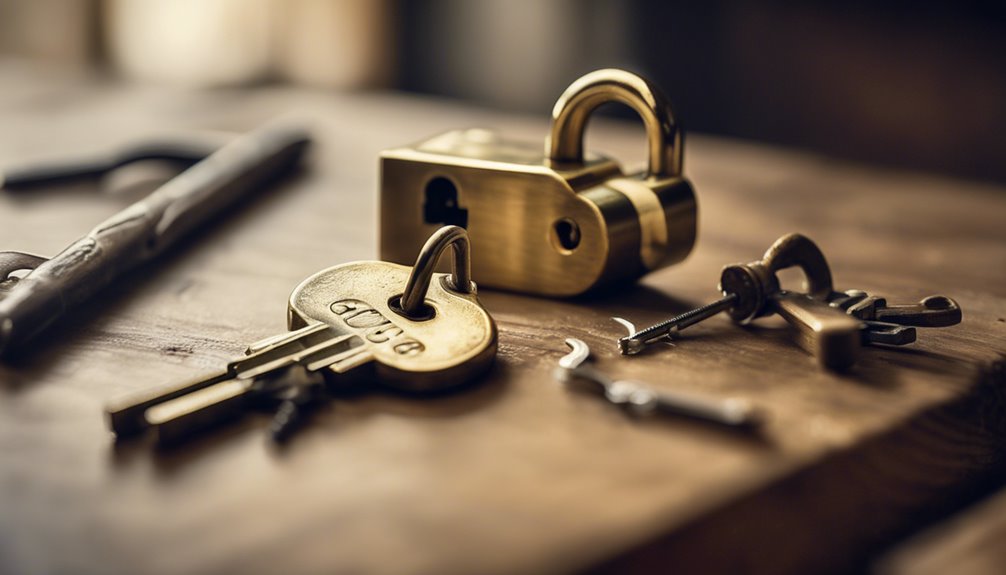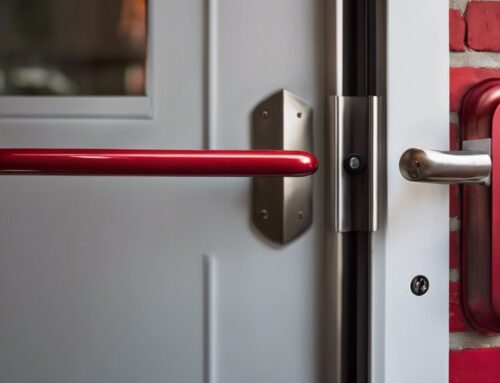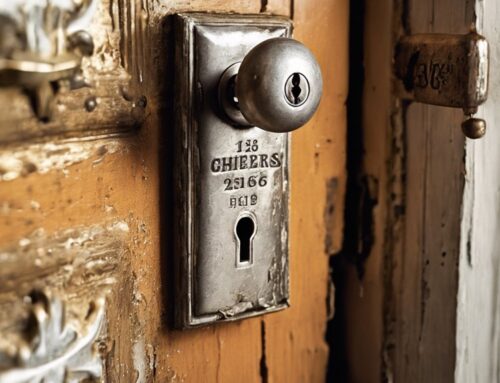Maneuvering the lock universe can feel like walking a tightrope, balancing cost and security. When you're faced with the decision of rekeying versus replacing your locks, it's essential to take into account your specific needs and the implications of each choice. Rekeying might seem like the simpler route, but what happens when those old locks no longer provide the security you require? Understanding the nuances of these options can save you money and provide peace of mind, but the right answer isn't always obvious. Let's explore what you need to know to make an informed decision.
Key Takeaways
- Rekeying is a cost-effective option, typically ranging from $20 to $150, ideal for new homeowners or lost keys.
- Lock replacement provides enhanced security and new key systems, with costs generally between $50 and $500 based on complexity and hardware quality.
- Evaluate the condition of existing locks; functional locks may be suitable for rekeying, while worn or outdated locks require replacement.
- Hiring a licensed locksmith in New York ensures compliance with local regulations and proper execution of either rekeying or replacement.
- Consider immediate security needs; urgent threats may necessitate lock replacement for advanced security features not available through rekeying.
Understanding Rekeying
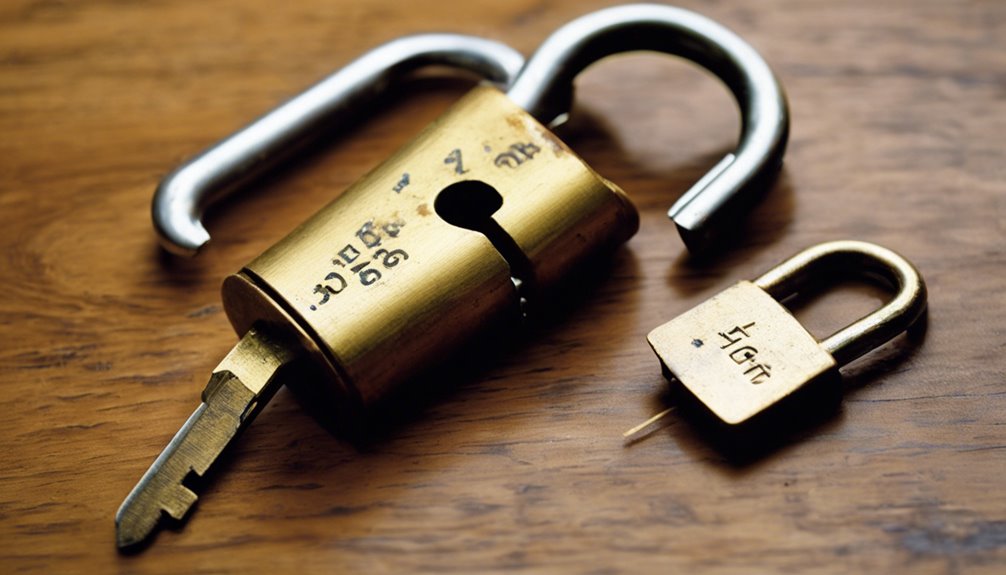
Although many people might think replacing a lock is the only way to secure their property, rekeying offers a practical alternative. This method involves adjusting your existing lock mechanism to work with a new key, allowing you to maintain the current lock's exterior while rendering old keys obsolete. By recalibrating the internal pins or tumblers, rekeying enhances security without the financial burden of new lock hardware. Additionally, it is considered a cost-effective solution for enhancing security while maintaining your existing locks. In New York, understanding employment laws can help locksmiths navigate the rekeying process efficiently. Furthermore, locksmiths in New York play a key role in ensuring compliance with local eviction laws during the rekeying process.
To rekey a lock, a professional locksmith disassembles it to access the internal mechanism. The key pins or tumblers are then replaced or rearranged to align with the new key, guaranteeing that only it operates the lock. This process typically takes just a few minutes when executed with the right tools, and reassembly follows the pin adjustments.
You might consider rekeying in several situations. If you've just moved into a new home, rekeying guarantees old keys no longer work. It's also wise to rekey if your keys are lost or stolen, addressing potential unauthorized access. If you want multiple locks to operate with a single key or need a key change, rekeying serves as a convenient solution.
While rekeying is a cost-effective choice and keeps your lock looking the same, it doesn't enhance the lock's security level; it merely alters the key. Additionally, verify you have the current matching key, or you might face extra charges.
Understanding Lock Replacement
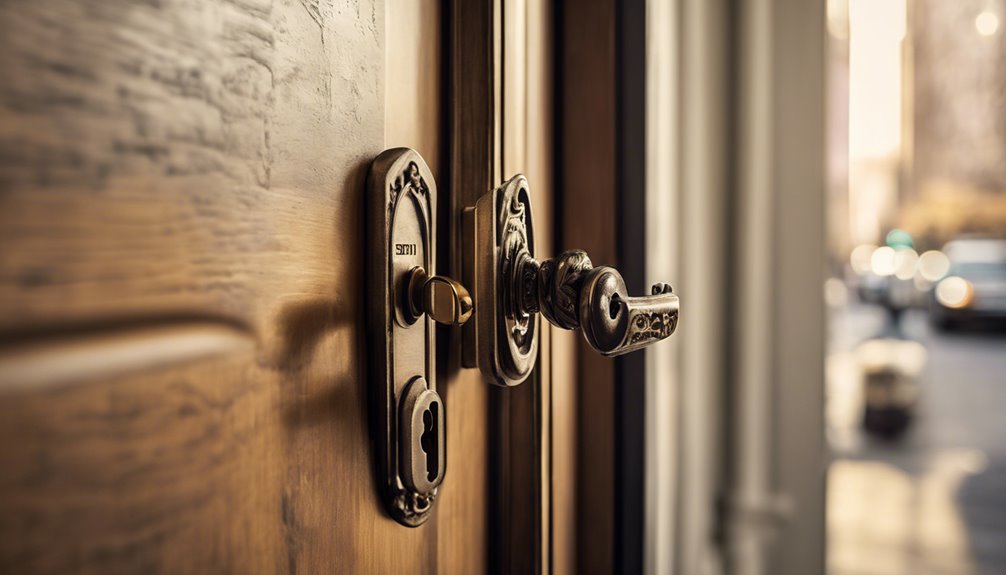
When you need to enhance the security of your home, lock replacement can be a more effective solution than rekeying. This process involves removing the old lock and installing a new one, providing you with a fresh key system and upgraded security features. Effective locks are essential for home security, particularly since they must comply with New York's lock standards. Moreover, selecting compliant locks is vital for ensuring fire code compliance in your property.
To accomplish this, you'll require basic tools like flathead and Phillips screwdrivers, a wrench for mounting bolts, a new lockset, and a drill if you need to make new holes.
Start by removing the old lock. Remove the screws that hold the deadbolt thumb turn on the door, then take out the thumb turn and the deadbolt cylinder. Next, detach the doorknob screws and pull the knob off.
Continue by unscrewing the lockset from the door and then the latch from the jamb side.
Once the old lock is removed, you can proceed to install the new lock. Slide the new deadbolt into the appropriate hole, leaving it loose. Insert the latch into the door's edge, ensuring the rounded face is positioned toward the jamb.
Secure both the latch and deadbolt with screws before aligning and tightening the new lockset.
Finally, make sure all screws are tight and that there's no gap between the door and frame. Test the lock by turning it in both directions, ensuring smooth functionality.
If needed, adjust the backset of the latch and trim the door to fit the latch plate, removing any shims afterward to confirm everything operates correctly.
Cost Differences
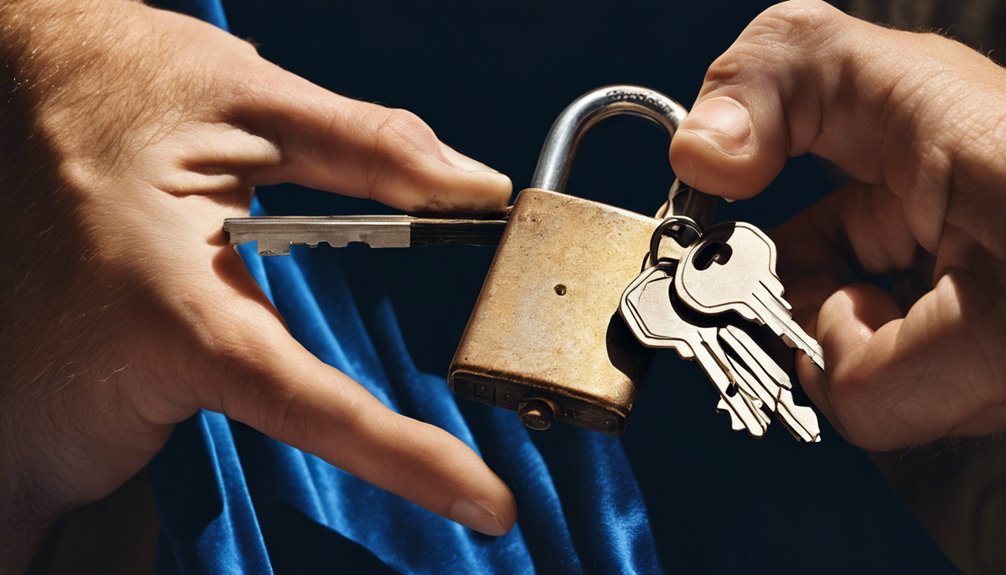
The cost of rekeying a lock typically ranges from $20 to $150, while lock replacement can set you back between $50 and $500. Understanding these costs can help you decide which option suits your needs better. Rekeying is often the faster, more affordable choice when dealing with lost keys or changing tenants. In contrast, lock replacement may be necessary if your locks are worn out or if you're looking for advanced security features. This is especially relevant since rekeying helps maintain existing lock hardware while enhancing security. Additionally, it's important to ensure that you follow legal procedures for changing locks after an eviction in New York, as failure to do so can result in legal consequences for landlords.
Here are four key factors influencing the cost differences:
- Complexity: Rekeying simpler locks generally costs less than dealing with high-security systems that require specialized tools and skills.
- Labor: Rekeying mostly involves labor costs, while replacement includes both labor and hardware expenses, making replacements pricier.
- Quality of Hardware: Higher quality or brand-name lock replacements considerably increase the overall cost compared to rekeying existing hardware.
- Customization: If you need custom locks with advanced features, you'll pay more for lock replacement than you'd for straightforward rekeying.
Security Implications
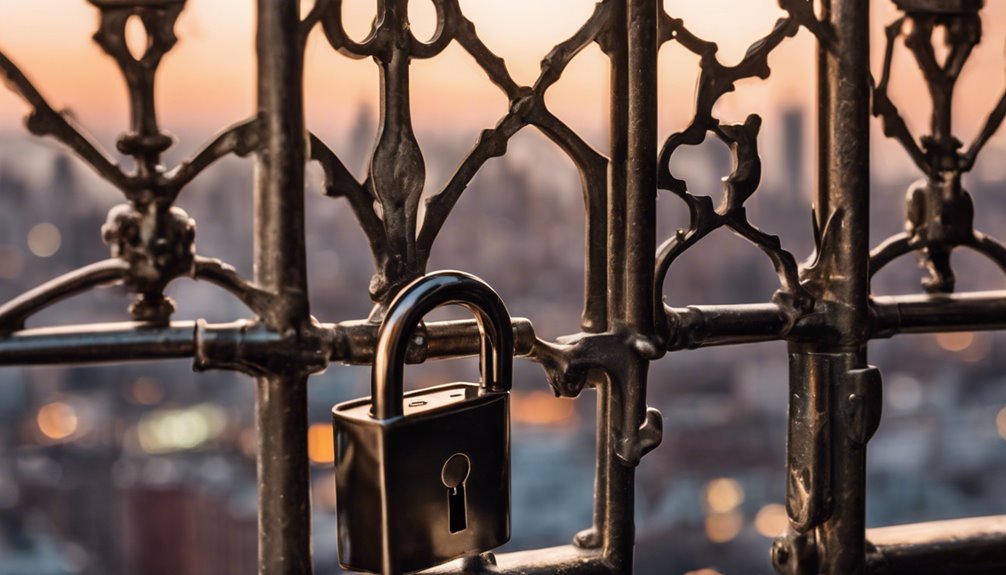
Understanding security implications is essential when deciding between rekeying and lock replacement. Both options have their merits, but they address different security needs. When you rekey a lock, you render previous keys ineffective but don't enhance the lock's inherent security features. This option is beneficial if you've lost your keys or just moved into a new home, as it guarantees that only the newly cut keys can operate the lock. However, if the lock is damaged or outdated, rekeying may leave you vulnerable. Additionally, operating as an unlicensed locksmith can result in severe legal consequences and compromise your security efforts.
Below is a comparison of security implications for both options:
| Security Aspect | Rekeying | Lock Replacement |
|---|---|---|
| Key Control | New keys prevent unauthorized access | New keys and hardware enhance security |
| Lock Condition | Worn locks may remain vulnerable | Addresses wear and vulnerabilities |
| Security Features | No upgrade to security features | Opportunity to upgrade to advanced locks |
| Past Security Breaches | Doesn't resolve past security issues | New locks guarantee robust security post-breach |
| Cost Efficiency | Generally cheaper but limited improvements | Higher upfront cost; long-term investment |
Lock replacement is typically the preferred option when risks are higher, such as after attempted break-ins or if your locks don't meet current security standards. It not only boosts security through advanced features like smart technology but also guarantees reliability, contributing to your overall safety. Additionally, consider the legality of your actions, as locksmiths must adhere to state laws on lock picking to ensure compliance. Always assess your specific situation to determine which choice aligns best with your security needs.
Choosing the Right Option
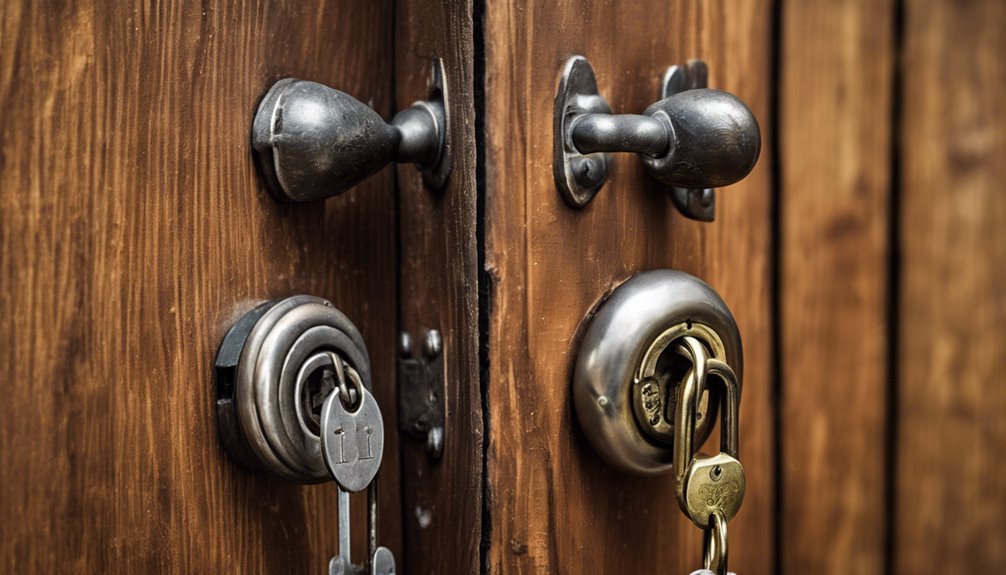
How can you determine whether rekeying or lock replacement is the best choice for your situation? Assess your specific needs, budget, and the condition of your locks to make an informed decision. Here are four key factors to weigh:
- Cost: Rekeying typically ranges from $50-$150, while lock replacement can cost $150-$500. If you're looking for a budget-friendly solution, rekeying is almost always the way to go.
- Condition of Locks: Evaluate the state of your locks. If they're in good shape and function properly, rekeying is ideal. However, if they're damaged or outdated, replacement is necessary. Many homeowners overlook the benefit of regular lock maintenance to extend the lifespan of their locks.
- Security Needs: If you've lost keys or need to change access for new tenants or employees, rekeying offers a quick fix. For higher security needs—like electronic or fingerprint locks—replacement is usually preferred.
- Time and Convenience: Rekeying requires less time and fewer tools compared to complete lock replacement. It's a more efficient solution for maintaining your current locks' aesthetics while ensuring security. Additionally, professional locksmiths provide 24-hour local locksmith services for both rekeying and lock replacement needs.
Frequently Asked Questions
Can I Rekey a Smart Lock?
Yes, you can rekey a smart lock, but it depends on the model.
For instance, if you have a Kwikset SmartKey lock, you can easily rekey it using the current key and a SmartKey tool. Just rotate the key, insert the tool, and follow the steps for your new key.
However, not all smart locks allow for straightforward rekeying, so make sure to check your specific model's requirements before proceeding.
How Long Does Rekeying Last?
When you rekey a lock, the changes typically last as long as the lock itself remains functional and secure.
For instance, if you've just moved into a house and rekeyed the front door, you can expect that rekeying to hold strong for years, provided the lock is in good condition.
However, wear and tear can eventually affect its effectiveness, so regular maintenance is key to retaining that security you need.
Will I Need New Keys After Rekeying?
Yes, you'll need new keys after rekeying.
When you rekey a lock, the internal mechanisms change to work with a different key, rendering the old one useless.
You'll receive a new key that fits the reconfigured lock, and if you rekey multiple locks to operate with the same key, you'll only need that single new key.
Without it, you won't be able to access the rekeyed lock, so keep it safe!
Can I Replace a Lock Myself?
Yes, you can replace a lock yourself. With basic tools like a Phillips screwdriver and some DIY skills, the process is straightforward.
Just follow the installation instructions that typically come with new locks. However, be cautious—improper installation could create security vulnerabilities or damage your door.
If you're uncertain, consider hiring a professional to guarantee everything's aligned correctly and functioning well. A small investment in expertise can save you potential headaches down the line.
What Should I Do After Losing All Keys?
After losing all your keys, securely assess your situation.
Start by checking for spare keys or contacting friends for temporary access. If you suspect theft, notify the police and your insurance company.
Evaluate your locks—if they're damaged, consider replacement. For a quicker, cost-effective solution, rekeying may be ideal.
Consulting a locksmith can help you decide the best course of action for maintaining security and ensuring peace of mind in your home.
Conclusion
When deciding between rekeying and lock replacement, weigh the costs, security implications, and your unique needs. Rekeying offers quick, affordable peace of mind, while replacement provides robust, long-term protection. Trust your instincts, consult with a licensed locksmith, and choose the option that safeguards your home and comfort. You deserve security that meets your standard, security that adapts to your changing circumstances, and security that guarantees your family's safety now and in the future.

